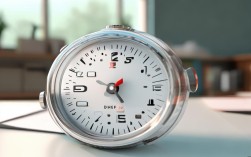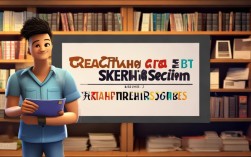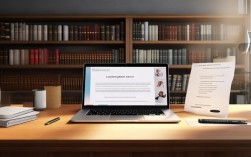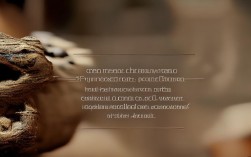在雅思口语考试中,正装”的问题可能会出现在Part 1, Part 2, 和 Part 3。

Part 1: 简单问答
这部分通常是关于个人习惯和经历的简单问题。
常见问题:
-
Do you like to wear formal clothes?
- 思路: 直接回答喜欢或不喜欢,然后给出1-2个理由。
- 回答示例:
- "Yes, I do. I feel more confident and professional when I wear formal clothes, especially for important occasions like job interviews or formal events."
- "Not really. I'm much more comfortable in casual wear like jeans and a t-shirt. I find formal clothes a bit restrictive and uncomfortable for daily life."
-
How often do you wear formal clothes?
- 思路: 给出频率,并说明在什么情况下穿。
- 回答示例:
- "I'd say I wear formal clothes maybe once or twice a month. That's usually for weddings, business meetings, or when I attend formal dinners."
- "To be honest, almost never. My workplace has a very relaxed dress code, so I can just wear smart casual clothes every day."
-
What do you consider to be formal wear?
- 思路: 列举一些典型的正装单品,并可以稍微描述一下。
- 回答示例:
"For men, I think it's typically a suit with a tie, dress shoes, and a dress shirt. For women, it could be a tailored pantsuit, a formal dress, or a skirt and blouse combo. The key is that it's neat, well-fitting, and made of quality fabrics."
Part 2: 个人陈述
这是核心部分,你需要根据提示卡进行1-2分钟的独白。
可能的话题卡:
Describe an occasion when you had to wear formal clothes. You should say:
- What the occasion was
- Who you were with
- What the formal clothes were like
- And explain how you felt about wearing formal clothes on that occasion.
回答思路与词汇:
-
Introduction (引入话题):
"I'd like to talk about a time I had to dress up formally. It was for my cousin's wedding last summer."
-
Occasion & Who you were with (事件与同伴):
"The wedding was a very grand affair, held in a five-star hotel ballroom. It was a traditional Chinese ceremony, so there was a lot of pomp and circumstance. I went with my immediate family – my parents, my sister, and my grandparents. It was a big family gathering, and everyone was excited and dressed to the nines."
-
What the formal clothes were like (正装描述):
- (描述自己的穿着): "As for my own outfit, I decided to go for a classic black tuxedo. It was a well-tailored suit with a satin lapel, a crisp white dress shirt, a black bow tie, and a pair of polished black Oxford shoes. I have to admit, I spent quite a bit of time getting ready. I even had my hair styled and wore a corsage on my lapel."
- (描述他人/整体氛围): "Looking around, the men were all in sharp suits and ties, while the women were stunning in elegant evening gowns and high heels. The atmosphere was electric; everyone looked their absolute best, which really added to the celebratory mood."
-
How you felt (感受):
- (正面感受): "At first, I felt a bit out of my element because I don't usually dress that formally. However, once I put it on and saw everyone else looking so sophisticated, I started to feel really good. It made the whole experience feel more special and memorable. I felt like I was part of something important and that I was showing my respect for the couple by making an effort."
- (负面感受/转折): "To be honest, it was a bit uncomfortable. The shoes were pinching my feet, and I couldn't wait to take off the tie and just relax and dance later in the evening. But overall, the feeling of looking sharp and being part of a beautiful celebration far outweighed the minor discomfort."
Part 3: 深入讨论
这部分考官会就Part 2的话题进行更抽象、更深入的发问。
常见问题:
-
Why do you think some jobs require employees to wear formal clothes?
- 思路: 从专业性、公司形象、客户信任等角度回答。
- 回答示例:
"I believe it's primarily about projecting a professional image. In industries like law, finance, or corporate consulting, formal wear helps to establish credibility and authority. It shows clients and partners that the company is serious, reliable, and trustworthy. It also creates a sense of discipline and uniformity within the workplace."
-
Do you think the trend of casual wear in the workplace is increasing? Why?
- 思路: 肯定趋势,然后分析原因,如科技公司影响、员工幸福感、创意行业需求等。
- 回答示例:
"Absolutely, I think it's a growing trend, especially in the tech and creative industries. Companies like Google and Apple have popularized a more relaxed dress code. The main reason, I suppose, is to boost employee morale and comfort. When people feel at ease in what they're wearing, they might be more productive and creative. It also helps to flatten the hierarchy, making the workplace feel more egalitarian and less stuffy."
-
Has the definition of 'formal wear' changed over time?
- 思路: 对比过去和现在,说明变化和原因。
- 回答示例:
"Definitely. If you look back at photos from the 1950s or 60s, men almost always wore suits and hats even for everyday outings. Nowadays, the standards have relaxed a lot. A 'smart casual' look, like a blazer with dark jeans and nice shoes, is often acceptable in many formal settings. I think this change reflects a more relaxed and individualistic society. People value personal comfort and self-expression more than strict social conformity."
-
Is it important for people to follow dress codes, for example, at a wedding or a formal event?
- 思路: 肯定其重要性,从尊重场合、主人、其他宾客等角度分析。
- 回答示例:
"Yes, I think it's quite important. Dress codes exist for a reason. At a formal event, they help to create a certain atmosphere and ensure everyone feels comfortable. More importantly, it's a sign of respect for the hosts and the occasion itself. If you showed up at a black-tie wedding in shorts and a t-shirt, it would be seen as disrespectful and could make you and the hosts feel awkward. It's about being considerate of the social norms and the effort others have put into making the event special."
核心词汇
为了让你在谈论这个话题时更地道,这里有一些核心词汇:
-
Nouns (名词):
- Suit (西装)
- Tuxedo (晚礼服)
- Evening gown (晚礼服)
- Tailored suit (量身定做的西装)
- Dress shirt (正装衬衫)
- Tie / Bow tie (领带 / 蝴蝶结)
- Blazer (运动西装外套)
- Oxford shoes (牛津鞋)
- Heels (高跟鞋)
- Pomp and circumstance (盛况,排场)
- Elegance (优雅)
- Sophistication (老练,精致)
-
Adjectives (形容词):
- Formal (正式的)
- Smart (得体的,聪明的)
- Casual (休闲的)
- Well-tailored (剪裁合身的)
- Crisp (挺括的)
- Polished (擦亮的)
- Elegant (优雅的)
- Restrictive (束缚的)
- Professional (专业的)
- Sharp (帅气的,干练的)
-
Phrases (短语):
- Dress up / Dress down (盛装 / 穿得随意)
- To be dressed to the nines (盛装打扮)
- Dress code (着装规定)
- Smart casual (商务休闲)
- Black-tie event (需要穿正式晚礼服的活动)
- Make an effort (用心打扮)
- Feel out of my element (感到不自在)
- Project a professional image (展现专业形象)
通过以上准备,你就可以自信、流利地应对雅思口语中关于“正装”的各种问题了,祝你考试顺利!











